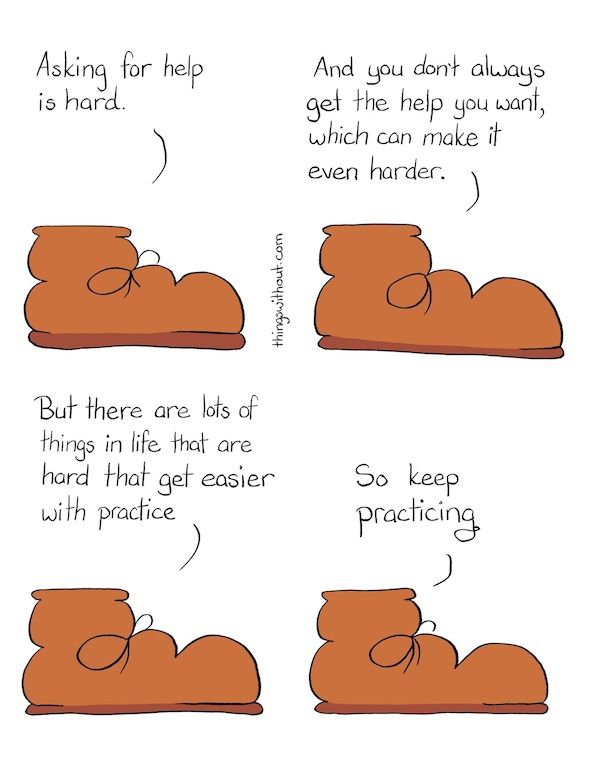4 Ways to Make Self-Care a Competitive Advantage
Learn how to make intentional choices to build self-care into your life and establish your competitive advantage.

This is a revision of How to Make Self-Care a Competitive Advantage which I wrote in May 2018. It has been updated and changed significantly.
A competitive advantage is defined as:
“a condition or circumstance that puts a company in a favourable or superior business position”(Oxford Languages).
It's something that entrepreneurs seek to give them an edge in their market.
While everyday life isn’t generally framed as a competition with other people, most of us are trying to find ways to put ourselves in better positions. But it’s hard!
We have responsibilities. We have competing demands on our time and attention. It is easy to get lost in the daily shuffle and settle into habits (some good, some bad). It’s easy to be “busy” and put our own needs at the end of our never-ending to-do lists in favour of our families, friends, colleagues, employees, and customers.
Often the only time we rise higher on our priority list is when we are burnout or sick. By then we have dug ourselves into a hole that is even harder to get out of.
And we are in a terrible position. So why do we do this to ourselves?
- Do you make good decisions when you’re tired?
- Are you productive when you're exhausted?
- Do you tolerate the inevitable annoyances of the day when you're drained?
- Are you creative and inspired when you're low energy?
I suspect that for most people the answer to these questions is a resounding NO.
So then why isn’t self-care something we prioritize? Why is it something that we consider selfish?
How can you expect to do your best work and give your attention and care to those you love when you are running on empty?
What if self-care was a competitive advantage in life?

Reclaiming the language of self-care
Unfortunately, the words self-care have been co-opted by the wellness industry and come with some weird connotations. They conjure images of massages, bubble baths, and whale songs. The words self-care are associated with being indulgent, selfish, and lazy. They are also often connected to guilt and shame.
These self-care connections and connotations mean that many of us feel the need to justify any downtime we take and carry that guilt when we do finally take it. Self-care is something we are only allowed on occasion, perhaps on the one-week vacation we take every year or the afternoon we take off from work when we are sick.
In entrepreneurship in particular there is an entire narrative centred around who is "busiest", working the most hours, and most exhausted. It’s as though you deserve a badge for running yourself ragged.
It’s kind of silly.

The definition of self-care is:
“the practice of taking action to preserve or improve one's own health.” (Oxford Languages)
With this definition in mind, instead of being selfish or indulgent, consider that self-care is something that will make you better at all the other things in your life. Self-care is how we avoid being tired, exhausted, drained, and low energy.
Self-care helps us make good decisions, be productive, tolerate the annoyances of the day, and get creative and inspired.
We all have an opportunity to refocus on what self-care actually means and reclaim its meaning for ourselves, in whatever forms it may take.
Self-Care is a choice
There will be situations in our lives that we can’t control and have to weather storms that demand a lot from us. There will be 14-hour workdays or stressful family events or days spent chauffeuring kids to a birthday party and two extracurricular activities. There will be sickness, financial stressors, deaths, births, marriages, divorces, and a million other life hardships.
But we can make choices about how we handle these situations. We can choose to give ourselves space to be the best person we can be, given our particular circumstances.
We are all doing our best to succeed in life and business, but we make it harder on ourselves than it needs to be. We forget how much agency we have over our choices and what we commit our time and energy to.
Burnout is often a result of choices made without intention or thinking through long-term consequences.
Fortunately, we can also choose to include self-care as part of our daily lives and build burnout prevention into our lives.

4 ways to make self-care a competitive advantage in your life
Self-care is a competitive advantage when you build it into every day. By reframing self-care from an occasional luxury to being part of our regular habits, we put ourselves in a “superior position”. We prevent (or at least reduce) burnout and ensure we have the resources to handle the challenges life throws at us.
But we have to choose to integrate self-care into our daily lives. We have to change the meaning of self-care in our own minds into working hard AND taking care of ourselves. Not all or nothing. Not either-or.
Self-care is also not just for us; it’s for all the other people in our lives that rely on us. Our partners, kids, families, friends, colleagues, and employees all reap the benefits of a rested, recharged us. And so do we.
Here are some tactics to help make intentional choices to build self-care into your life and establish your competitive advantage.
1. Clarify what self-care means to you
Self-care doesn’t have to be massages and bubble baths (though it could be). It can be anything you want. Self-care is doing what recharges you and improves your physical and mental health.
1. Think about where you get your energy from
This is related to introversion and extroversion. Introverts are drained by being around others and recharged by being alone. Extroverts are drained by being alone and recharged by being around others.
The introversion/extroversion spectrum varies from person to person. Knowing roughly where you sit can help you make decisions about what kind of activities work best for you.
For example, I know that I am introverted. I need a lot of quiet alone time to recharge. Spending time at home reading, putzing in my little yard in the summer, and playing video games with my husband are my go-to recharge activities.
2. Make a list of things that help you recharge
Think about and write down what recharges. It could be anything:
- Reading fiction
- Putting together a puzzle
- Baking cookies
- Going for a walk
- Going to a yoga class
- Writing in a journal
- Playing video games with your friends
- Painting DnD figurines
- Crocheting
- Playing recreational basketball every week
- etc.
We all have things in our heads about what self-care should look like. Some of those things will work for you and some won’t. There will be things that work for your partner or friends that don’t work for you and vice versa. That’s ok!
If you aren’t sure what recharges you, take some time each day to note down how you feel after different types of activities and see if you find any patterns.
3. Make a list of things that take energy from you
Knowing what drains you is almost as important as knowing what fills you up. Think about the activities, responsibilities, or relationships in your life that take a lot out of you.
Is there a way to reduce the amount of time and energy you spend on them? Or even stop them entirely? Sometimes the answer is yes, sometimes the answer is no.
Even if you can’t change some of those things, being aware of what drains you will help you plan for them.
An example of something that takes energy from me is mindlessly scrolling social media. It’s a bad habit and one I have tried to eliminate from my days. Instead, I try to limit my time on social media by reading my book on my phone. I have the Kindle app which syncs across devices so no matter where I am, I can read a book instead of social media.
4. Try new things to see what works for you
What activities are similar to how you recharge now that might be worth a try? For example:
- If you find creative endeavours help energize you, try something new.
- If you find physical activity makes you feel good, look at something you haven’t tried before.
- If you like reading fiction, try reading some non-fiction.
- If playing basketball with your friends fills your bucket, try a volleyball league.
- If you like puzzles, colouring might be an option.
The benefit of trying new things is that you stretch yourself a little, which feels good, while still discovering new ways to recharge.
For example, I tried outdoor running a few years back. When I started I was not in the best shape and after the first few runs, I wanted to keel over and never get up. However, I kept going and discovered that I actually really enjoy running! It appeals to my inner introvert because it’s something I do alone, it clears my mind, and exercise always makes me feel good when it’s done.
5. Self-care doesn’t have to be an activity
Sometimes self-care isn’t doing something but rather an internal shift. Self-care can be things like:
- Letting your partner take care of you when you have had a hard day.
- Sharing a challenge with someone you trust, not because you want them to solve it, but because it helps to not carry it alone.
- Saying no to something that you can't easily fit into your schedule and not feeling bad about it.
- Setting boundaries around your time so you can focus on something that is important to you.
- Asking for help instead of struggling through something on your own.
Self-care comes in many forms. Knowing what self-care is for you and DOING it, is what will help you cultivate that competitive advantage.

2. Intentional calendar management
We all live eventful lives. We have jobs, friends, family and the myriad of commitments that come with each of those. Though it often feels like we are just along for the ride, we get to make decisions about many of these commitments.
1. Keep a reasonable calendar
If your calendar is a sea of meetings, appointments, events, kids’ activities, etc. think twice about what you add to it. Consider:
- How you are feeling.
- What you have already committed to.
- What you have to do.
- What you want to do.
I keep a careful eye on my calendar as my weeks fill up and try hard to not overbook myself. I update my booking availability every week and protect the time blocks I have set aside for other work or tasks.
2. Practice and learn to say no
As I mentioned above, one of the most powerful ways we can take care of ourselves is to say no, or at least not now, to commitments that don’t fit for us. Reasons a new commitment might not be a good fit:
- Your schedule is already full.
- You have blocked that time off for something else.
- You are feeling tired and don’t have the energy.
- The request is not something you are interested in.
Why something is not a fit for us doesn’t matter as much as taking the time to evaluate and consider your self-care needs.
Overcommitting is often driven by guilt and people-pleasing. We think about everyone else’s wants and needs before thinking about ours. While it is always a balance, your needs still need to be part of the equation.
If you are going to make self-care a competitive advantage in your life, you have to learn to say no. And I do mean learn to say no. It’s a skill that has to be practiced.
There will always be more business events, webinars, birthday parties, volunteer commitments and…and…and. You only have so much time and so much energy. They are both finite.
When you spend all your time and energy and don’t recharge, it’s very hard to keep going.
3. Book self-care into your calendar
A way to build self-care into your life is by booking it into your calendar. Look at your schedule and put aside a non-negotiable amount of time for you to do whatever it is that helps you recharge.
It might be half an hour a day that you get to read a book. It might be time for fitness. It might be blocking off date night with your partner. Book it in your calendar so you are looking at it every day and reminding yourself to take it.
For example, some ways I book self-care into my life:
- I block off days in my calendar where I don’t want any more commitments with DO NOT BOOK.
- I don’t take meetings on Fridays.
- I have 30-45 minutes of workout time set aside every day.
- Friday nights are pizza and movie nights with my husband.
While your available time will vary depending on your life stage and role in your business, you can still find pockets in your schedule to fit self-care time. Book it, protect it, and DO it.

3. Communicate your self-care needs
If you don’t tell the people in your life what you need, it makes it harder to get it. One of the ways to make sure your intentionally booked self-care time happens is to communicate it to the people in your life.
We all know what it’s like to be burnt out. Most people are not going to begrudge you for taking action to prevent or reduce it. In fact, most people are pretty understanding if you need to bump a meeting, take a rain check, or say no to an outing.
If we tell the people in our lives what we need and set boundaries, it’s so much easier to build in that self-care, keep to it, and gain that competitive advantage.
It also follows that you open the door for others to communicate their self-care needs to you. Give and take. If we help give each other the opportunity to recharge, we will all function at a higher level.
4. Ask for help
Asking for help is along the same lines as communicating your self-care needs but a step further. Asking for help is hard and, like self-care, mired in guilt. I wrote another post about this called, How to Develop the Skill of Asking for Help. Similar to learning to say no, asking for help is a skill that has to be learned and practiced.
If self-care is a competitive advantage and asking for help is a form of self-care, consider that asking for help benefits everyone:
- Things get done faster.
- The task is easier.
- You learn something you didn’t know.
- You find a better way to approach something.
- You lighten a load.
Asking for help puts you in a better position to help others in return.
Most people like to be asked for help by someone they care about. Human relationships are reciprocal and helping others is a way many people show love.
Consider the loads you are carrying or upcoming challenges that would benefit from a bit of help. Think about who might be able to help. And ask.

Summary
Self-care is a competitive advantage because you will handle every part of your life better. Everything is easier when you feel rested and have the energy to take on the day-to-day challenges and joys of business and life. But you have to choose to make self-care a priority.
The first step is reframing self-care from a luxury to a habit and making it a part of every day. Then you can take time to get clarity on what self-care means to you, plan it in your schedule, communicate it to others, and ask for help when you need it.
Are you burnt out and trying to figure out how to fit self-care in your life sounds like a monumental task? Book some one-on-one coaching sessions with me and I will help you figure it out.
Share
Ashley Janssen

Productivity consultant, writer, speaker, serial entrepreneur, chaos calmer, introvert, cat-lady. Lover of books, fitness, old fashioned’s, basketball, and video games.
Follow me on
Twitter
or
LinkedIn.
Hire me for
1 on 1 productivity consulting
or
speaking.
Related articles

What If Being Lazy Was a Good Thing?

Discovering The Right Way to Live


Comments ()